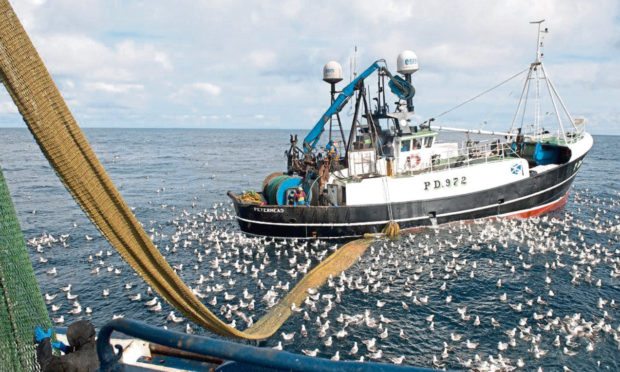The first trilateral fishing quota talks between the UK, EU and Norway have delivered a mixed catch for the Scottish fishing fleet.
Its North Sea cod allowance was cut by 10%, saithe by 25%, herring by 7.4%, and plaice by 2.3%, but there were moderate increases for haddock (20%) and whiting (19.1%).
Scottish Fishermen’s Federation chief executive Elspeth Macdonald said: “While there are positive outcomes on haddock and whiting, the result for North Sea cod is particularly disappointing in light of the very poor deal on adjusted quota shares between the UK and EU through the Brexit negotiations.
“This will pose some very real problems for our demersal (white-fish) fleet this year, as indeed will the reduction in TAC (total allowable catch) for North Sea saithe.
“The cod situation continues to be exacerbated by the outdated model for assessing the North Sea stock. It doesn’t reflect the actual stock structure and distribution.”
She added: “In this, our first year as an independent coastal state, the industry acknowledges the effort and commitment of officials in both the Scottish and UK governments who have worked tirelessly to get the best possible outcome for our fleet.
“This will, however, be a very challenging year for our demersal sector.”
This will pose some very real problems for our demersal fleet this year.”
Elspeth Macdonald, Scottish Fishermen’s Federation chief executive
Shetland Fishermen’s Association (SFA) also criticised the “flawed” basis on which decisions were made.
SFA chairman James Anderson said: “We knew as soon as the scientific advice was issued last year that the outlook for cod and saithe in particular was very difficult.
“Cod has already been cut savagely (by 33% and 50% in 2019 and 2020 respectively), reflecting the fact the science has not caught up with a northerly movement in the distribution of the stock.
‘Abundance’
“The… process still focuses on a lack of cod in the southern North Sea and takes no account of its abundance in the northern North Sea, particularly around Shetland.
“It leaves the industry in an unnecessarily difficult situation – we are facing steep cuts in quota for a stock that is virtually impossible to avoid in our mixed fisheries.”
Cod stock assessments are due to be reviewed later in 2021, but SFA executive officer Simon Collins said any new scientific advice would be “too late for this year”.
Gains in quota share from Brexit were not enough to make up for the cut in cod quota, Mr Collins said, adding: “Without full control of access to our waters, we have had little leverage to match quotas with what we are seeing on the fishing grounds.
“In the circumstances, with few cards to play, Scottish government negotiators worked hard to deliver quotas for these species that would undoubtedly have been worse for us if we had still been in the EU and this had been the usual EU-Norway bilateral.”
“We are facing steep cuts in quota for a stock that is virtually impossible to avoid in our mixed fisheries.”
James Anderson, Shetland Fishermen’s Association chairman
The UK Government led Britain’s negotiating team in the talks.
Scotland Office Minister David Duguid said: “For the first time in decades we have concluded our first trilateral negotiations with the EU and Norway as an independent coastal state.
“The outcome represents an increase in the total allowable catch of certain key stocks for Scotland – such as haddock and whiting.
“Agreements have also been made which safeguard the long-term viability of some other key stocks, such as cod.”
UK Fisheries Minister Victoria Prentis added: “As an independent coastal state we are committed to managing our fisheries sustainably, to the benefit of the fishing industry across the UK and our marine environment, now and in the years to come.”
